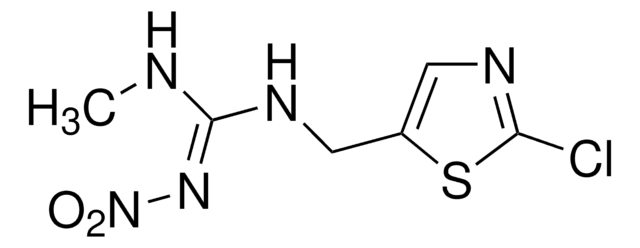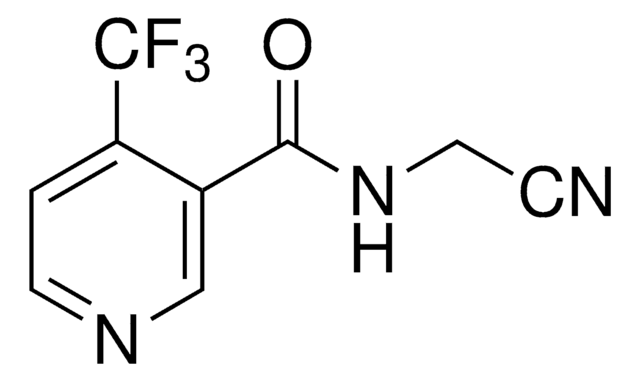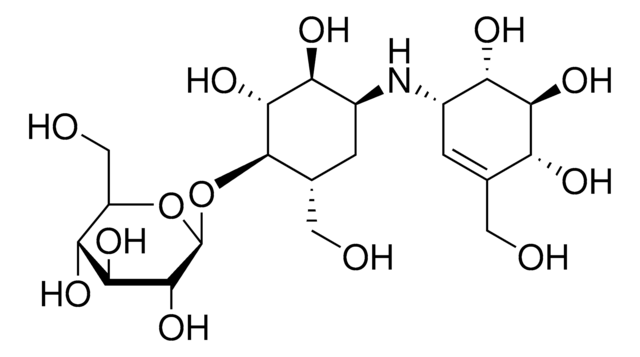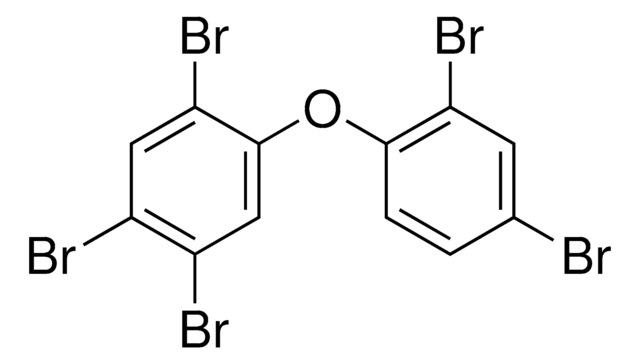37050
Flupyradifurone
PESTANAL®, analytical standard
Sinónimos:
4-[(6-Chloro-3-pyridylmethyl)(2,2-difluoroethyl)amino]furan-2(5H)-one
About This Item
Productos recomendados
grade
analytical standard
Quality Level
product line
PESTANAL®
shelf life
limited shelf life, expiry date on the label
technique(s)
HPLC: suitable
gas chromatography (GC): suitable
format
neat
SMILES string
FC(F)CN(Cc1ccc(Cl)nc1)C2=CC(=O)OC2
InChI
1S/C12H11ClF2N2O2/c13-10-2-1-8(4-16-10)5-17(6-11(14)15)9-3-12(18)19-7-9/h1-4,11H,5-7H2
InChI key
QOIYTRGFOFZNKF-UHFFFAOYSA-N
¿Está buscando productos similares? Visita Guía de comparación de productos
General description
Application
Recommended products
Legal Information
signalword
Warning
hcodes
Hazard Classifications
Acute Tox. 4 Oral - Aquatic Acute 1 - Aquatic Chronic 1 - STOT RE 2
target_organs
muscle
Storage Class
11 - Combustible Solids
wgk_germany
WGK 2
flash_point_f
Not applicable
flash_point_c
Not applicable
Elija entre una de las versiones más recientes:
¿Ya tiene este producto?
Encuentre la documentación para los productos que ha comprado recientemente en la Biblioteca de documentos.
Los clientes también vieron
Nuestro equipo de científicos tiene experiencia en todas las áreas de investigación: Ciencias de la vida, Ciencia de los materiales, Síntesis química, Cromatografía, Analítica y muchas otras.
Póngase en contacto con el Servicio técnico



















